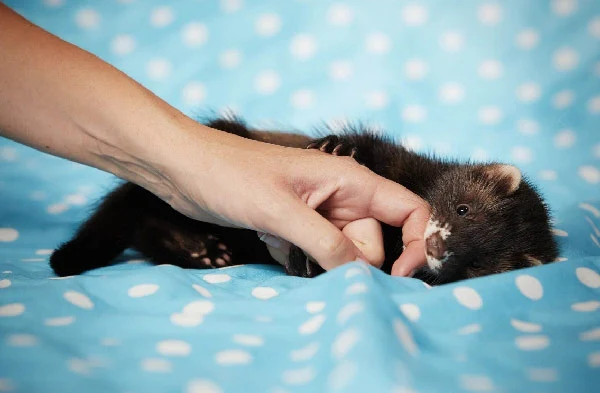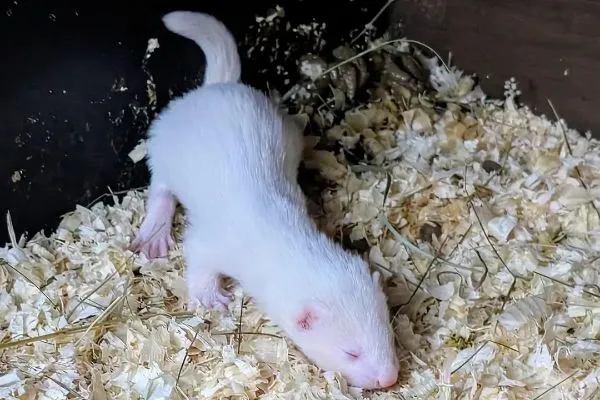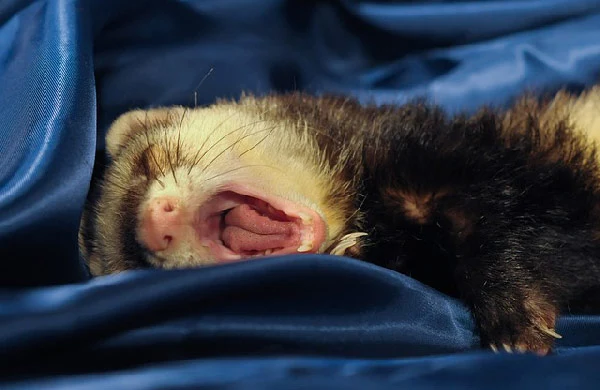Owning a ferret can be a lot of fun, but it can also be tricky. Understanding your ferret’s behavior is very important for a happy life together. By knowing the common ferret behavior problems and their solutions, you can make sure both you and your furry friend are happy and healthy.
The Importance of Understanding Ferret Behavior
Understanding your ferret’s behavior is not just about stopping problems—it’s about becoming closer to your pet. Ferrets have unique personalities and behaviors that can be confusing if you don’t understand them. By learning about their natural habits and needs, you can create a safe and loving home. This makes you and your ferret happy. For example, ferrets are naturally playful and curious, which means they need plenty of toys and activities to stay happy.
How Behavior Problems Affect Ferret and Owner
Behavior problems can make life stressful for both you and your ferret. Problems like biting, aggression, and chewing on things can be hard to deal with. These problems can make life harder for your ferret and cause frustration for you. For instance, a ferret that bites might be scared or in pain, and this can make you feel worried or even scared to handle your pet. It’s important to understand and fix these problems early to keep your home peaceful and happy.
Common Behavior Problems in Ferrets
Biting
Ferrets might bite for different reasons, like fear, pain, or play. They have sharp teeth and a strong bite, so this can be painful. To stop biting, avoid rough play and handle your ferret gently. Giving treats while handling your ferret can help create positive experiences. If your ferret bites during play, try giving it a toy to bite instead.

Aggression
Aggression can show up as biting, lunging, or hissing. It can be caused by territorial behavior, fear, or lack of socialization. To manage aggression, make sure your ferret has plenty of social interaction, and a safe environment, and address any health issues. Spend time with your ferret daily to build trust and reduce fear.

Scratching and Digging
Scratching and digging are natural behaviors for ferrets. They often do this to burrow or explore. To reduce destructive scratching, give your ferret digging boxes filled with safe materials like shredded paper or rice. This helps satisfy their instinct to burrow. Make sure to supervise to prevent any accidents.
Nipping During Play
Ferrets often nip during play, but it can become a problem if it’s too rough. Using training techniques like time-outs or redirecting their attention with toys can help reduce nipping. Be consistent and use positive reinforcement. If your ferret nips too hard, say “no” firmly and stop playing for a few minutes.
Destructive Chewing
Ferrets love to chew on things like wires, shoes, and furniture. This can be dangerous, especially if they chew on electrical cords. To prevent this, provide safe chew toys and ferret-proof your home by keeping dangerous items out of reach. You can also use bitter sprays on furniture to deter chewing.
Litter Box Training Issues
Teaching a ferret to use a litter box can be difficult. Common problems include refusing to use the box or going to the wrong places. Tips for successful training include using multiple boxes, keeping them clean, and placing them in spots your ferret likes. Praise your ferret when it uses the litter box correctly.

Escaping and Roaming
Ferrets are curious and love to explore. To keep them from escaping, make sure all doors and windows are secure. Use playpens or cages made for ferrets to keep them safe. Check for gaps or holes in your home that a ferret could squeeze through and block them.
Excessive Vocalization
Ferrets make many sounds, like dooking, hissing, and screeching. Understanding these sounds helps you address excessive noise. For example, dooking usually means your ferret is happy while hissing can indicate fear or discomfort. Make sure your ferret is comfortable, well-fed, and not stressed.
Stealing and Hiding Objects
Ferrets like to steal and hide things. This is a natural behavior called “ferret stash.” To manage this, give them plenty of toys and hiding spots so they don’t take your belongings. Check their favorite hiding spots regularly to retrieve stolen items.

Climbing and Falling Hazards
Ferrets love to climb, but this can lead to falls and injuries. Make your home safe by removing climbing hazards and providing safe climbing alternatives like cat trees. Ensure high places are not accessible, and supervise your ferret during playtime.
Fearfulness and Shyness
Some ferrets are naturally shy or scared, especially in new places or around new people. Recognize fear and build your ferret’s confidence through gentle handling and gradual exposure to new experiences. Be patient and give your ferret time to adjust.
Overgrooming and Hair Loss
Overgrooming can cause hair loss and skin problems. It can be due to stress, boredom, or health issues. Provide a stimulating environment with toys and activities to reduce boredom. Check with a vet to address any health concerns that might be causing overgrooming.

Excessive Sleeping
Ferrets sleep a lot, but too much sleep can sometimes mean there are health issues. Know your ferret’s normal sleep patterns and look for changes that might need a vet’s attention. A healthy ferret should be active and playful when awake.
Obesity and Overeating
Obesity is common in pet ferrets due to overfeeding and not enough exercise. Watch your ferret’s weight and body condition. A healthy diet and regular play can help manage their weight. Avoid giving too many treats and provide balanced, nutritious food.
Hyperactivity
Ferrets are very energetic and can sometimes be hyperactive. Provide plenty of opportunities for exercise and play to manage their energy levels. Interactive toys and tunnels can help youngsters stay entertained while also reducing their energy levels.
Separation Anxiety
Ferrets can get anxious when left alone for long periods. Signs include excessive noise, destructive behavior, and changes in eating habits. Reduce anxiety by providing companionship, interactive toys, and a safe, comforting environment. Consider getting a second ferret for the company if you are often away.
Jealousy and Territorial Behavior
Ferrets can be jealous and territorial, especially with other pets. Managing multiple ferrets means ensuring each has their own space and resources. Introduce them gradually and supervise their interactions to prevent fights.
Inappropriate Scratching on Owners
Ferrets might scratch you during play or when scared. Train them to avoid scratching people by using gentle handling techniques and providing appropriate scratching outlets like posts or mats. Trim their nails regularly to reduce scratching.
Refusal to Eat Certain Foods
Ferrets can be picky eaters and refuse certain foods. Understand their dietary preferences and provide a balanced diet that meets their nutritional needs. Offer a variety of foods and be patient as they get used to new tastes.
Health-Related Behavior Changes
Changes in behavior can sometimes mean health problems. Recognize these changes and seek veterinary advice when necessary. Pay attention to signs like changes in eating, activity levels, or bathroom habits. Regular vet check-ups are necessary to detect any problems early.
Solutions and Training Techniques
Positive reinforcement training works well for ferrets. This entails rewarding positive conduct with treats or praise. Establishing a routine helps your ferret feel secure and reduces stress. Providing environmental enrichment and stimulation keeps your ferret engaged and happy. Gentle handling and gradual introductions to new experiences can also help prevent behavior problems.
Preventing Behavior Problems
Early instruction and socialization are essential for preventing behavioral issues. Provide a ferret-friendly environment with lots of toys, safe spaces, and activities. Regular health check-ups are essential to catch any issues early and keep your ferret healthy. Make sure your ferret has plenty of interaction and attention to keep them happy.



















